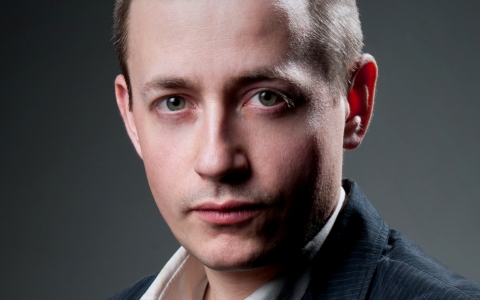ANALYSIS: Understanding the jihadists through their poetry and piety
by - 12th June 2015

YOU might not think that ‘what jihadis do in their spare time’ would be a topic of much interest, but it’s one that has been under-reported and is just now breaking into public awareness.
Much of the credit for this goes to Robyn Creswell and Bernard Haykel for their current New Yorker piece, Battle lines: Want to understand the jihadis? Read their poetry.
But behind Creswell and Haykel’s piece lurks a striking presentation given by the Norwegian terrorism analyst Thomas Hegghammer at St Andrews in April.
Hegghammer’s Wilkinson Memorial lecture was titled Why Terrorists Weep: The Socio-Cultural Practices of Jihadi Militants.
In it, he noted that jihadists engage in which he termed “soft” activities – activities that would not be necessary for any group engaging in terrorism, of no direct military value, but yet deeply significant to the jihadist groups themselves.
Hegghammer told his audience:‘My main message today is this: the non-military activities of terrorist groups can shed important new light on how extremists think and behave.
‘In fact, I’ll go so far as claiming that this topic is one of the last major, unexplored frontiers of terrorism research, one that merits an entire new research program.’
One major aspect of that program will have to do with the poetry of the jihadists, for it is in their poetry that we find the deepest expressions of their passions.
And among those passions, religion has a prominent place.
In one poem that Creswell and Haykel quote, a jihadist martyr tells his mother, ‘I’ve left my blood behind me, Mother, a trail that leads to paradise.’
Creswell and Haykel note that not only are the jihadists themselves poets, seeing themselves as part of a lineage stretching back to the time of the Prophet – so are their religious leaders:
‘Anyone who reads much jihadi poetry soon sees that it contains a great deal of theology. Religious doctrine is the essential glue of the culture, and many jihadi theologians have written poems.
‘Just as the poets think of themselves as resurrecting an authentic poetic heritage, so the theologians believe that they are uncovering and resuscitating the true tenets of their faith.’
And this poetic strain is not unique to al-Baghdadi’s Islamic State: al-Qaeda too has its poets.
Indeed, Creswell and Haykel note, ‘Of all jihadi poets, bin Laden was the most celebrated, and he prided himself on his knowledge of the art.’
In one of his letters, found when the US Navy SEALs raided his compound in Abbottabad, bin Laden wrote,‘if there are any brothers with you who know about poetic meters, please inform me, and if you have any books on the science of classical prosody, please send them to me.’
There’s religious content in his poems, too.
Prof. Flagg Miller of the University of California, Davis, has been researching a trove of bin Laden’s cassette tapes found in 2002 in Kandahar.
His book, The Audacious Ascetic: What Osama Bin Laden's Sound Archive Reveals About Al-Qaeda, is due out later this year.
Prof. Miller told the Huffington Post that when bin Laden would visit events such as weddings, he would mix news of the jihad up ‘with radical theology and his own verse based on the traditions of hamasa - a warlike poetic tradition from Oman calculated to capture the interest of young men.’
‘The violence and barbarism of war can sicken anybody,' Prof Flagg observed, ‘and poetry is a way to frame that violence in higher ethics.’
Creswell and Haykel quote a saying attributed to the Prophet frequently used by jihadists:‘Islam began as a stranger, and it shall return as it began, as a stranger. Blessed are the strangers.’
They comment. ‘Islam began as a stranger in the sense that Muhammad’s first followers in Mecca were persecuted by the town’s unbelievers, a period of hardship that led, eventually, to the flight to Medina.
Today, ‘the strangers’ – al-ghuraba’ – is taken to refer also to ‘the last nucleus of authentic Muslims’.
It is also the name taken by an al-Qaida group fighting in Syria, as reported by Ghaith Abdul-Ahad in The Guardian in 2012:
‘They call themselves the ghuraba'a, or "strangers", after a famous jihadi poem celebrating Osama bin Laden's time with his followers in the Afghan mountains.’
We see, then, that poetry is deeply interwoven in the life of jihadis of many stripes –there is even a fine book of Poetry of the Taliban, and another of Poems from Guantanamo.
But this poetic aspect, along with other “soft” aspects of jihadist behaviour, is only too easily overlooked by a western world where poetry lacks the deep popular appeal it holds in Arabic cultures.

As Hegghammer notes, ‘I’ve studied jihadi groups for almost fifteen years, and for the first ten, I was addressing standard questions, like, how did group A evolve, what has ideologue B written, who joins movement C, etc.
‘I knew that these groups were weeping and reading poetry, but it didn’t really register - it was background noise to me, stuff I needed to shove aside to get to the hard information about people and events.
‘Then it occurred to me one day that these practices are not obvious at all; in fact, they are really quite strange.
‘For one, there is the incongruence of hard men doing soft things.
‘It is curious, for example, that Abu Mus’ab al-Zarqawi should be known simultaneously as “al-dhabbah” (the slaughterer) and “al-baki” (he who weeps a lot).
Zarqawi was the brutally violent jihadist whose own organization, going under various names, was the seed from which today’s nemesis, the Islamic State or ISIS,has grown.
‘Know your enemy’, said the Chinese master strategist Sun Tzu in his book The Art of War – and whether our aim is to know or to love our enemy, we would do well to study not just their strategy, tactics and logistics, but also their passions.
Their poetry, rich as it is in religious overtones, is a fine place to start.
**
[ ed. note: Robyn Creswell's name was mis-spelled "Criswell" on first posting - this error has now been corrected throughout ]
- Dr Hegghammer first discussed these topics in an interview with Abu Muqawama commemorating the tenth anniversary of the 9/11 attacks in New York and Washington
- Prof. Thomas H. Johnson’s Naval Postgraduate School’s paper, Poetry: Why it Matters to Afghans? describes “the power of poetry within the Afghan battle space”
- See also Jeffrey Brown and Daniel Sagalyn, Poetry as a Weapon of War in Afghanistan
